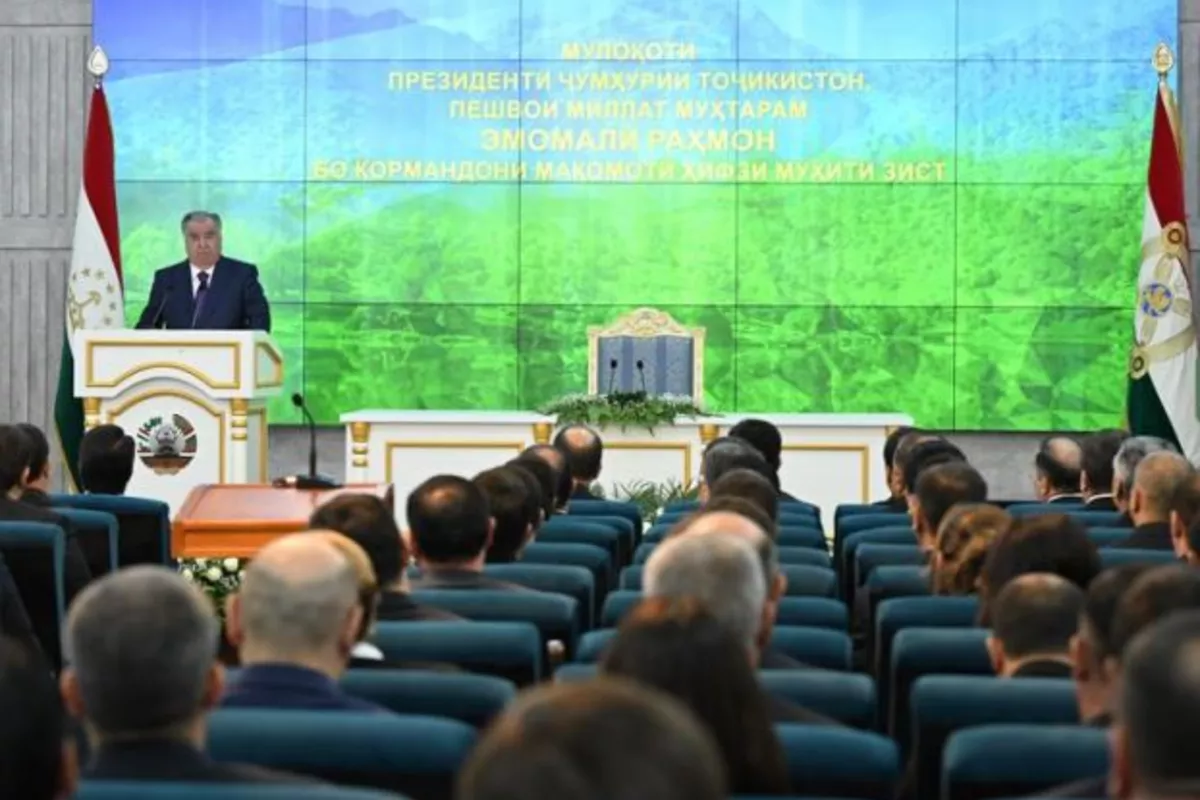
photo: Asia Plus
President Emomali Rahmon has reaffirmed Tajikistan’s deepening commitment to ecological security, sustainable natural resource use, and proactive climate action during the official opening of the new headquarters of the Committee for Environmental Protection under the Tajik Government.
In his address, President Rahmon emphasized the urgent national and global relevance of environmental sustainability, calling for modernization of environmental legislation, including the drafting of a new Environmental Code and targeted development programs across key sectors, The Caspian Post reports via Tajik media.
“Safeguarding natural resources and addressing climate change are not only ecological imperatives but strategic priorities for Tajikistan’s development,” he stated.
Driving Climate Action and Water Resilience
President Rahmon underlined Tajikistan’s active role in global climate discourse, particularly through its leadership in water diplomacy and glacier protection. He directed relevant agencies to expand the country’s hydrometeorological network and modernize water monitoring systems, highlighting their importance in adapting to climate risks.
Protecting Biodiversity and Natural Reserves
Highlighting the richness of Tajikistan’s natural heritage, the President instructed the Committee to:
Develop a National Biodiversity Conservation Strategy;
Implement a Protected Areas Development Program (2026-2030);
Seek UNESCO Biosphere Reserve status for the Romit Reserve.
He also called for expanded efforts to protect endangered species listed in the national Red Book, while encouraging the development of eco-tourism in national parks and other ecologically significant zones.
Cleaner Cities, Smarter Waste Solutions
In pursuit of greener urban and rural spaces, President Rahmon ordered the full implementation of the State Greening Program through 2040, with an emphasis on sustainable planting practices.
He identified waste management as a pressing concern, calling for:
Establishment of large-scale waste processing enterprises;
Incentive mechanisms for recycling and reuse;
Overhaul of waste collection, transportation, and sorting systems.
The president also underscored the importance of mobilizing international climate finance, urging the Committee to seek grants and technical support from global environmental funds.
Investing in Environmental Education and Research
To support long-term innovation and capacity building, Rahmon proposed:
Launching a National Environmental Education Program (2026-2030);
Establishing a Scientific and Research Institute focused on environmental protection, climate change, and ecosystems;
Training globally competent specialists, including language-proficient experts to work with international partners.
Commitment to Action
President Rahmon concluded his remarks by expressing confidence in the country’s environmental professionals, encouraging them to meet Tajikistan’s environmental challenges with patriotism, professionalism, and innovation.
Share on social media